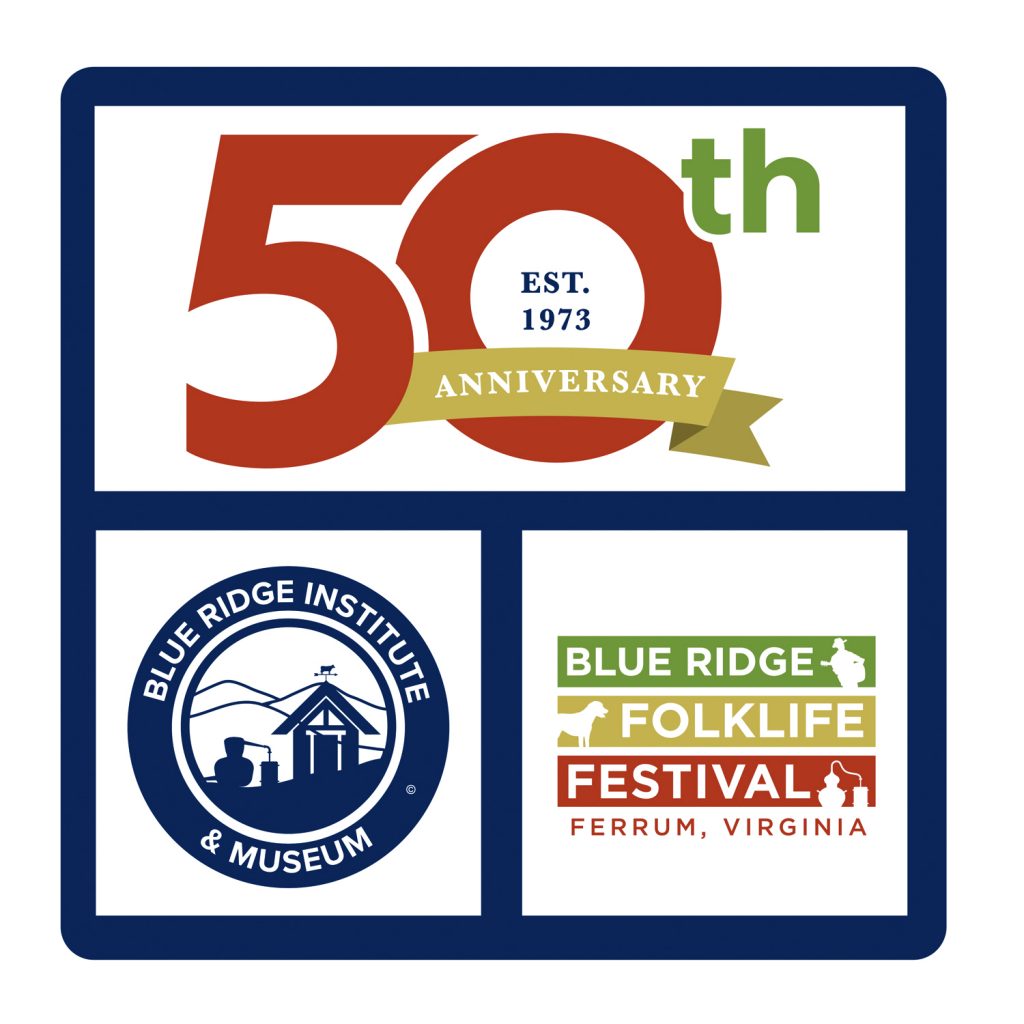
In 2023, the Blue Ridge Institute & Museum (BRIM) is celebrating a half century milestone of authenticity. In 1973, the Blue Ridge Institute & Museum was created by Ferrum College to document, interpret, and present the folk heritage of the Blue Ridge region. Since that time, BRIM has grown steadily, working throughout Virginia and the Appalachian Region while maintaining an emphasis on the western portion of the Commonwealth. Today, BRIM is the largest folklife museum in the state.
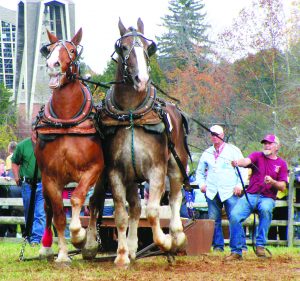
The Blue Ridge Institute & Museum has a longstanding national reputation for quality and authenticity. From festivals and concerts to exhibitions and publications, BRIM offers educational and entertaining programming. The Institute’s audience spans all ages and backgrounds, enhancing Ferrum College’s educational mission. A heritage-tourism leader, BRIM is a major venue on The Crooked Road, Virginia’s Heritage Music Trail. In 1986, in recognition of its accomplishments, the Institute was designated The State Center for Blue Ridge Folklore by Governor Gerald Baliles and the Virginia State Legislature.
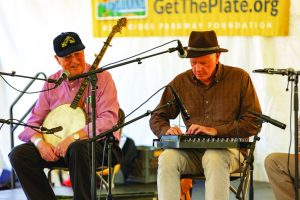 The same year BRIM was established, the legendary Blue Ridge Folklife Festival also began. A celebration of Blue Ridge traditions, the festival is still taking place today, rather than remaining a thing of the past. This annual one-day event has been called, “thoroughly authentic” by The New York Times. It consists of four stages featuring old-time, bluegrass, and country music. It also has coon dog water races, mule jumping, draft horse pulling, handmade crafts, moonshine tastings, and delicious traditional foods like fried apple pies. There is a children’s game area and an enormous car show, as well as tractor and small engine demonstrations. The Blue Ridge Folklife Festival is a celebration like no other.
The same year BRIM was established, the legendary Blue Ridge Folklife Festival also began. A celebration of Blue Ridge traditions, the festival is still taking place today, rather than remaining a thing of the past. This annual one-day event has been called, “thoroughly authentic” by The New York Times. It consists of four stages featuring old-time, bluegrass, and country music. It also has coon dog water races, mule jumping, draft horse pulling, handmade crafts, moonshine tastings, and delicious traditional foods like fried apple pies. There is a children’s game area and an enormous car show, as well as tractor and small engine demonstrations. The Blue Ridge Folklife Festival is a celebration like no other.
The enduring popularity of the Blue Ridge Folklife Festival has led the Blue Ridge Institute & Museum to create other events, such as the annual Moonshine Heritage Bash and Car Show, the Crooked Road BBQ Competition, and the Blue Ridge Herb Lore Gathering.
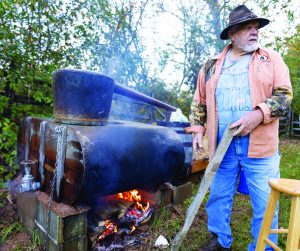 Since its inception, BRIM has grown to include three main divisions. First is the Blue Ridge Institute, which houses the main collection of historical artifacts, including but not limited to the most extensive collection of moonshine stills and still parts on the East Coast. Second is the Blue Ridge Heritage Archives and third is the Blue Ridge Farm Museum. These three departments work together to present a thorough and thoughtful representation of the Blue Ridge region.
Since its inception, BRIM has grown to include three main divisions. First is the Blue Ridge Institute, which houses the main collection of historical artifacts, including but not limited to the most extensive collection of moonshine stills and still parts on the East Coast. Second is the Blue Ridge Heritage Archives and third is the Blue Ridge Farm Museum. These three departments work together to present a thorough and thoughtful representation of the Blue Ridge region.
 The exhibition galleries are the only such facilities in Virginia dedicated to the presentation of regional, traditional culture and they are dedicated to displaying BRIM’s vast collection of artifacts. BRIM is one of the few small museums left that creates its own exhibits, combining contemporary and historical folk arts and traditions. Selected exhibits even travel throughout The Commonwealth. The most recent exhibit produced by the Blue Ridge Institute & Museum is Souvenirs of Virginia: Travelers’ Trinkets. This is the first exhibit in the state focusing on the history of souvenirs. Filled with over 1,500 artifacts, Travelers’ Trinkets has a little something for everyone.
The exhibition galleries are the only such facilities in Virginia dedicated to the presentation of regional, traditional culture and they are dedicated to displaying BRIM’s vast collection of artifacts. BRIM is one of the few small museums left that creates its own exhibits, combining contemporary and historical folk arts and traditions. Selected exhibits even travel throughout The Commonwealth. The most recent exhibit produced by the Blue Ridge Institute & Museum is Souvenirs of Virginia: Travelers’ Trinkets. This is the first exhibit in the state focusing on the history of souvenirs. Filled with over 1,500 artifacts, Travelers’ Trinkets has a little something for everyone.

Threshing demonstration at the 2011 Blue Ridge Folklife Festival at Ferrum College.
The Blue Ridge Farm Museum features one of Virginia’s finest collections of Blue Ridge agricultural tools and decorative arts, as well as textile and craft items. Set in the year 1800, the farmhouse and outbuildings set the stage for how people actually lived over two hundred years in the past. Featuring gardens of heirloom vegetables and an array of minor heritage livestock breeds, the Farm Museum wraps the visitor in the cloak of the 1800 regional lifestyle.
Throughout the year, historical interpreters at the Blue Ridge Farm Museum host over forty school visits, as well as multiple homeschooling events. During the summer season, the BRFM is open to the public on the weekends. Visitors will find interpreters baking bread, tending to the farmstead, and performing historical crafts such as blacksmithing and carpentry.
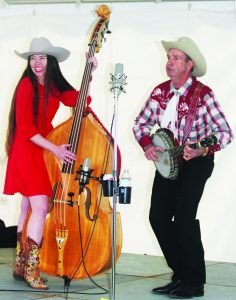 The Blue Ridge Heritage Archive preserves documents, images, and recordings significant to the folk culture of Virginia. The Archives house approximately two-thousand field tapes, three-thousand commercial recordings in CD, LP, 45, and 78 formats, seven-hundred cassettes, eight-thousand photographs, twelve-thousand slides, thirty-thousand negatives, eight-hundred reference publications, and hundreds of original manuscripts. Archival ‘gems’ include the Galax Old-Time Fiddlers Convention tapes, the vast Elmer Smith Collection of Shenandoah Valley folklore, the Lornell Collection of Virginia African American folk music, and the recently acquired Dorothy Cundiff collection.
The Blue Ridge Heritage Archive preserves documents, images, and recordings significant to the folk culture of Virginia. The Archives house approximately two-thousand field tapes, three-thousand commercial recordings in CD, LP, 45, and 78 formats, seven-hundred cassettes, eight-thousand photographs, twelve-thousand slides, thirty-thousand negatives, eight-hundred reference publications, and hundreds of original manuscripts. Archival ‘gems’ include the Galax Old-Time Fiddlers Convention tapes, the vast Elmer Smith Collection of Shenandoah Valley folklore, the Lornell Collection of Virginia African American folk music, and the recently acquired Dorothy Cundiff collection.
Currently numbering nine publications, the Blue Ridge Institute & Museum recordings present musical heritage from both historical and contemporary perspectives. Each of the albums was constructed around a central theme including Virginia Work Songs, Native Virginia Ballads, Tidewater Blues, Non-Blues Secular Black Music, and Early Roanoke Country Radio. The Grammy nominated series, now part of the Smithsonian Folkways recordings, showcases nearly a century of traditional singing and picking by authentic artists of the Commonwealth. Work is underway on a compilation of African American quartets of the Tidewater region.
 The Institute fills an important gap in cultural documentation and programming in western Virginia as a regional asset, expanding public awareness of folklife. Currently, the Institute has partnered with Franklin County and the Warren Historical Society to create the Franklin County African American Heritage Trail which will document the significance and contributions of African Americans in the county. Folkways, of course, are ever changing, and the Blue Ridge Institute & Museum works to highlight both the historic and the contemporary.
The Institute fills an important gap in cultural documentation and programming in western Virginia as a regional asset, expanding public awareness of folklife. Currently, the Institute has partnered with Franklin County and the Warren Historical Society to create the Franklin County African American Heritage Trail which will document the significance and contributions of African Americans in the county. Folkways, of course, are ever changing, and the Blue Ridge Institute & Museum works to highlight both the historic and the contemporary.
The Blue Ridge Institute & Museum
www.BlueRidgeInstitute.org • 540-365-4412
20 Museum Drive, Ferrum, VA
